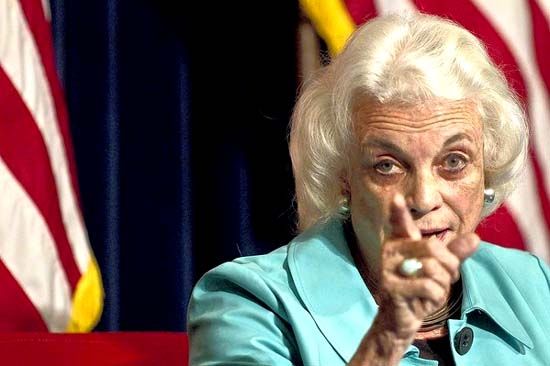In an interview with the Chicago Tribune, retired Supreme Court Justice Sandra Day O’Connor admitted that the Court possibly erred when it decided to take Bush v. Gore:
Maybe the court should have said, ‘We’re not going to take it, goodbye.
That, however, wasn’t even the kicker. This was:
It turned out the election authorities in Florida hadn’t done a real good job there and kind of messed it up. And probably the Supreme Court added to the problem at the end of the day. (emphasis my own)
Think about that for a second. She pretty much admits that the biggest decision rendered while she sat on the Supreme Court she provided the necessary vote to get it wrong and swing a presidential election. Perhaps this could have been somewhat understandable if George W. Bush had won the popular vote and there was a sense in the nation that the courts should step in to make sure the popular vote winner took office. That, however, was not the case. Bush lost the popular vote and her vote helped pave the way for the loser to take office.
Now, let’s take it a step further. The decision in Bush v. Gore was issued per curiam, literally meaning ‘by the court’. In such decision authorship is attributed to no specific justice and such decisions are usually restricted to cases that are either unanimous cases and uncontroversial cases. They usually do not occur in 5-4 cases, and certainly not in ones as controversial as Bush v. Gore. Yet, despite this, O’Connor helped make a 5-4 majority.
Then there’s this language in the Court’s opinion, language which has disturbed many since it first appeared:
Our consideration is limited to the present circumstances (emphasis my own), for the problem of equal protection in election processes generally presents many complexities.
Our system of common law jurisprudence is based upon the notion that prior cases provide precedent for future cases. Past decisions can, of course, be limited or overturned by courts of equal standing to the one that made the decision initially. Here, however, the Court largely confessed that its decision was not to be taken as precedent. That any common law court admits, in the decision itself, that the decision is not to be taken as precedent for any future cases is tantamount to an admission that the decision is not based upon the law, but, rather, based solely upon the will and preferences of the majority. That is what Sandra Day O’Connor signed her name to in the court’s per curiam opinion.
In closing, I suggest reading (or re-reading) this article written by Vincent Bugliosi at the outset of the Bush Administration back in 2001.

11 comments